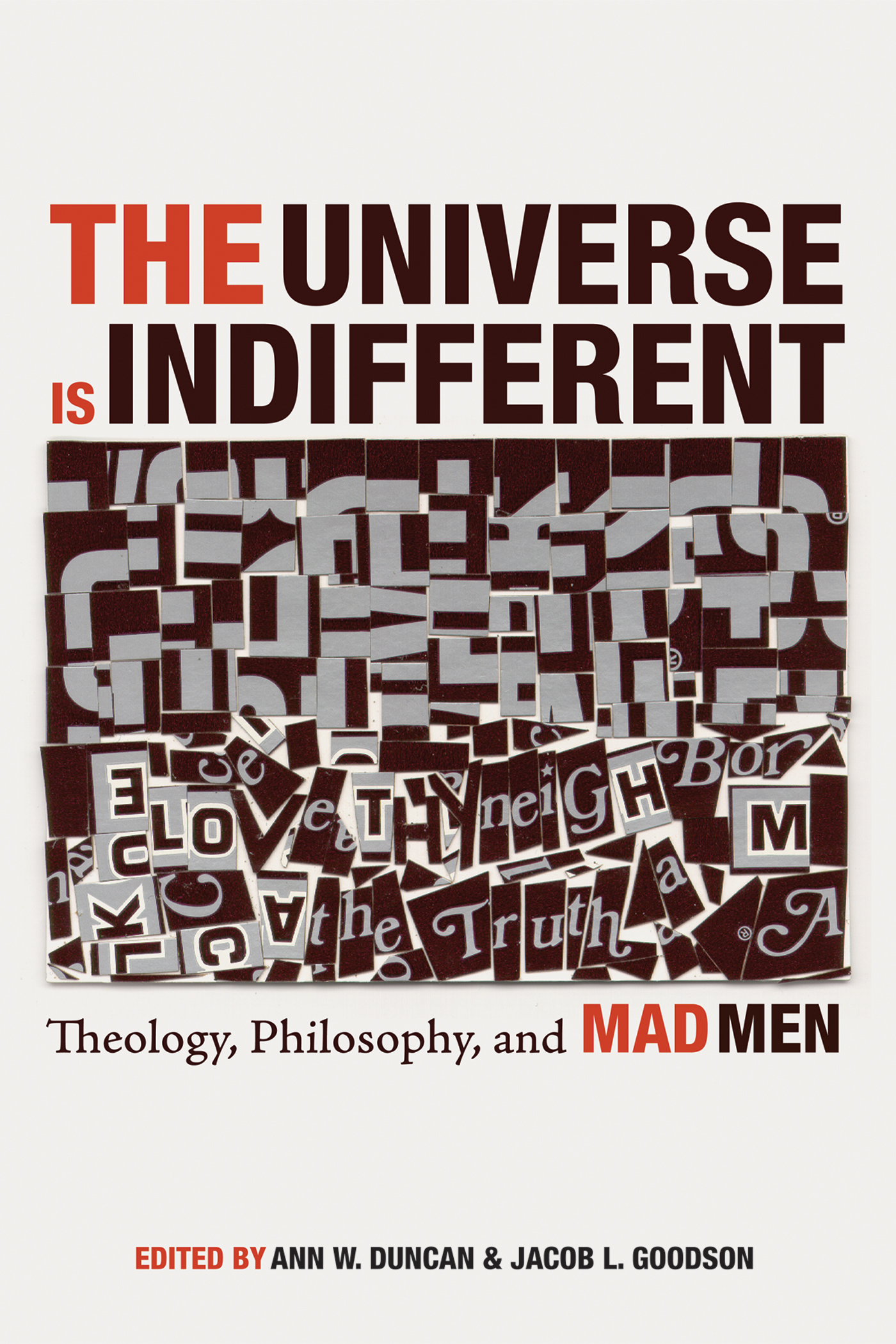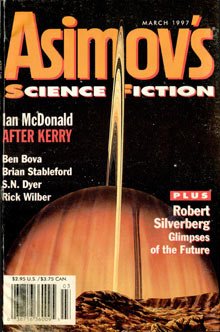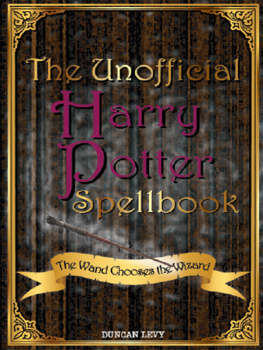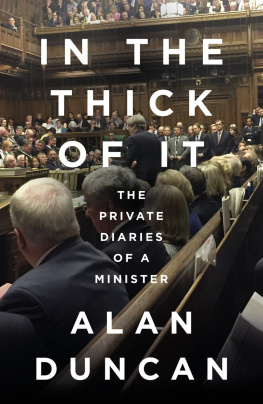Ann W. Duncan - The Universe Is Indifferent
Here you can read online Ann W. Duncan - The Universe Is Indifferent full text of the book (entire story) in english for free. Download pdf and epub, get meaning, cover and reviews about this ebook. year: 2016, publisher: LightningSource, genre: Science. Description of the work, (preface) as well as reviews are available. Best literature library LitArk.com created for fans of good reading and offers a wide selection of genres:
Romance novel
Science fiction
Adventure
Detective
Science
History
Home and family
Prose
Art
Politics
Computer
Non-fiction
Religion
Business
Children
Humor
Choose a favorite category and find really read worthwhile books. Enjoy immersion in the world of imagination, feel the emotions of the characters or learn something new for yourself, make an fascinating discovery.

- Book:The Universe Is Indifferent
- Author:
- Publisher:LightningSource
- Genre:
- Year:2016
- Rating:3 / 5
- Favourites:Add to favourites
- Your mark:
- 60
- 1
- 2
- 3
- 4
- 5
The Universe Is Indifferent: summary, description and annotation
We offer to read an annotation, description, summary or preface (depends on what the author of the book "The Universe Is Indifferent" wrote himself). If you haven't found the necessary information about the book — write in the comments, we will try to find it.
The Universe Is Indifferent — read online for free the complete book (whole text) full work
Below is the text of the book, divided by pages. System saving the place of the last page read, allows you to conveniently read the book "The Universe Is Indifferent" online for free, without having to search again every time where you left off. Put a bookmark, and you can go to the page where you finished reading at any time.
Font size:
Interval:
Bookmark:

Theology, Philosophy, and Ma d Men
Edited by
Ann W. Duncan
and
Jacob L. Goodson

The Universe is Indifferent
Theology, Philosophy, and Mad Men
Copyright 2016 Wipf and Stock Publishers. All rights reserved. Except for brief quotations in critical publications or reviews, no part of this book may be reproduced in any manner without prior written permission from the publisher. Write: Permissions, Wipf and Stock Publishers, W. th Ave., Suite , Eugene, OR 97401 .
Cascade Books
An Imprint of Wipf and Stock Publishers
W. th Ave., Suite
Eugene, OR 97401
www.wipfandstock.com
paperback isbn: 978-1-62564-897-6
hardcover isbn: 978-1-4982-8562-9
ebook isbn: 978-1-5326-0529-1
Cataloguing-in-Publication data:
Names: Duncan, Ann W., editor. | Goodson, Jacob L., editor.
Title: The universe is indifferent : theology, philosophy, and Mad Men / edited by Ann W. Duncan and Jacob L. Goodson.
Description: Eugene, OR: Cascade Books, 2016 | Includes bibliographical references and index.
Identifiers: isbn 978-1-62564-897-6 ( paperback ) | isbn 978-1-4982-8562-9 ( hardcover ) | isbn 978-1-5326-0529-1 ( ebook )
Subjects: LCSH: Mad Men (Television program) | Television broadcastingReligious aspectsChristianity.
Classification: PN1992.77.M226 U6 2016 ( paperback ) | PN1992.77.M226 ( ebook )
Manufactured in the U.S.A. 08/11/16
I hate to break it to you, but there is no big lie. There is no system. The universe is indifferent.
Don Draper, The Hobo Code, Season , Episode
T he editors of this volume wish to thank Goucher College and Southwestern College for their support of this project. Specifically, we thank the Goucher College Aitchison Faculty Development Fund for summer research support and Southwestern College for providing research assistance through its Honors program. Thank you to Lindsey Graber for her research and editorial support throughout the project. We also owe thanks to Chris Spinks, our editor at Wipf and Stock, who provided the initial encouragement to undertake this project and constant support throughout its development. Finally, we wish to thank our respective spousesDaniel and Angelawho were our faithful companions on innumerable evenings watching the stories of Mad Men unfold and who have been our first and most constant conversation partners about the series.
Ann W. Duncan and Jacob L. Goodson
T he AMC television series, Mad Men , takes its viewers on an emotional, psychological, and sociological roller coaster ride in the setting of New York City. The years depicted span March 1960 through either the autumn 1970 or winter 1971 depending upon ones interpretation of the Coca-Cola advertisement, an ad that first aired on radio on February , 1971 . Created by Matthew Weiner, Mad Men develops and follows the lives of Donald Draper/Dick Whitman, Peggy Olson, Joan Holloway/Harris, Roger Sterling, Pete Campbell, Megan Calvet/Draper, Betty Draper/Francis, and Sally Draper as they negotiate careers, love and marriage, and dramatic social and political change. This collection helps readers navigate the exciting roller coaster ride that is Mad Men , through exploring unknown depths of its characters and storylines. After enjoying the ride of watching all seven seasons of Mad Men , we hope that you take pleasure in the ride of reading The Universe Is Indifferent: Theology, Philosophy, and Mad Men.
The Universe Is Indifferent?
In Season , Don receives a bonus check in the amount of $, and brings it to his mistresss apartment with the hopes of inviting her to join him on a trip to Paris. He finds her relaxing with a group of marijuana-smoking friends markedly different from his colleagues on Madison Avenue. These friends engage with Don about the vices of his work and conclude, You make the lie. You invent want. Youre for them, not us. Don responds with an equal amount of clarity: I hate to break it to you, but there is no big lie. There is no system. The universe is indifferent. His mistress rises and comes to Don, and he again invites her to Paris. She claims that she cannot go with him; he signs his bonus check, puts it in her brassiere, and tells her to buy a car. Don turns to leave, but one of her friends gives Don a warning: There are cops. You cant go out there. Don responds without hesitation, No, you cant.
These beatniks remain critical toward power and society but not nihilistic about potential change within the world. Don claims that their criticism has no object: how does one bring the man down when the man does not exist? Their protests remain directed toward a ghost, a phantom. For them, Don is the face of this ghostthis phantom. But that becomes too easy of a target. Don cannot be the face of the man because there is no man for them to bring down and critique. The claim, the universe is indifferent, is not only an existentialist claimbecause it means that we must create meaning for ourselvesbut also a nihilistic claim in the sense that nothingness has as much power and sway as the meaning we make.
According to the German philosopher, Martin Heidegger, we can distinguish between two forms of nihilism: (a) Incomplete nihilism does indeed replace the former values with others, but it still posits the latter always in the old position of authority that is, as it were, gratuitously maintained as the ideal realm of the suprasensory; (b) Complete nihilism, however, must in addition do away even with the place of value itself, with the suprasensory as a realm, and accordingly must posit and revalue values differently. Which version of nihilism fits the world of Mad Men better remains up to the judgment of the viewer, but we certainly hope that this collection informs the question in helpful and interesting ways.
Chapter Previews
This book contains seventeen chapters divided into three sections. While the subject matters of the chapters have a decidedly socio-historical focus, the authors use basic topics as starting points for philosophical, religious, and theological reflections. Mad Men reveals deep truths concerning the social trends of the 1960 s and early 1970 s in American life. Because of this, Mad Men deserves a significant amount of reflection from philosophical, religious, and theological perspectives. Some of the chapters go beyond mere reflection and make deeper inquiries into what these trends say about American cultural habits, the business world within Western capitalism, and the rapid social changes (gender, race, and sexuality) during this period. In what follows, we provide brief previews of each chapter.
Part is ordered from general-to-particular-topics, with its bookends as two different perspectives on identity and work. In Its the Real Thing: Identity and Sincerity in Mad Men, Howard Pickett addresses both ethical and unethical business practices found in Mad Men . Pickett claims that the series, itself, represents what he calls a narrative ethic: a storyline, plot twists, and character development. All of these elements allow businesses in the real world to assess their own ethical approaches. Throughout Mad Men , we find a close connection between advertising, deception, and lying. Surprisingly, Don Draper refuses the temptation to lie in relation to his client, Lucky Strikes. The ambiguity of Dons character comes into play in the sense that while he is a liar (he consistently lies to those closest to him: Betty, Megan, and his children), Mad Men raises philosophical questions concerning authenticity, sincerity, and truthespecially in relation to Dons identity. Additionally, Pickett observes that Mad Men connects sex to selling, religion to retail. These connections play out in multiple advertisements produced throughout the series. Pickett claims that we need to maintain distinctions between public and private sincerity in order to establish healthy and moral business practices within the real world.
Font size:
Interval:
Bookmark:
Similar books «The Universe Is Indifferent»
Look at similar books to The Universe Is Indifferent. We have selected literature similar in name and meaning in the hope of providing readers with more options to find new, interesting, not yet read works.
Discussion, reviews of the book The Universe Is Indifferent and just readers' own opinions. Leave your comments, write what you think about the work, its meaning or the main characters. Specify what exactly you liked and what you didn't like, and why you think so.












